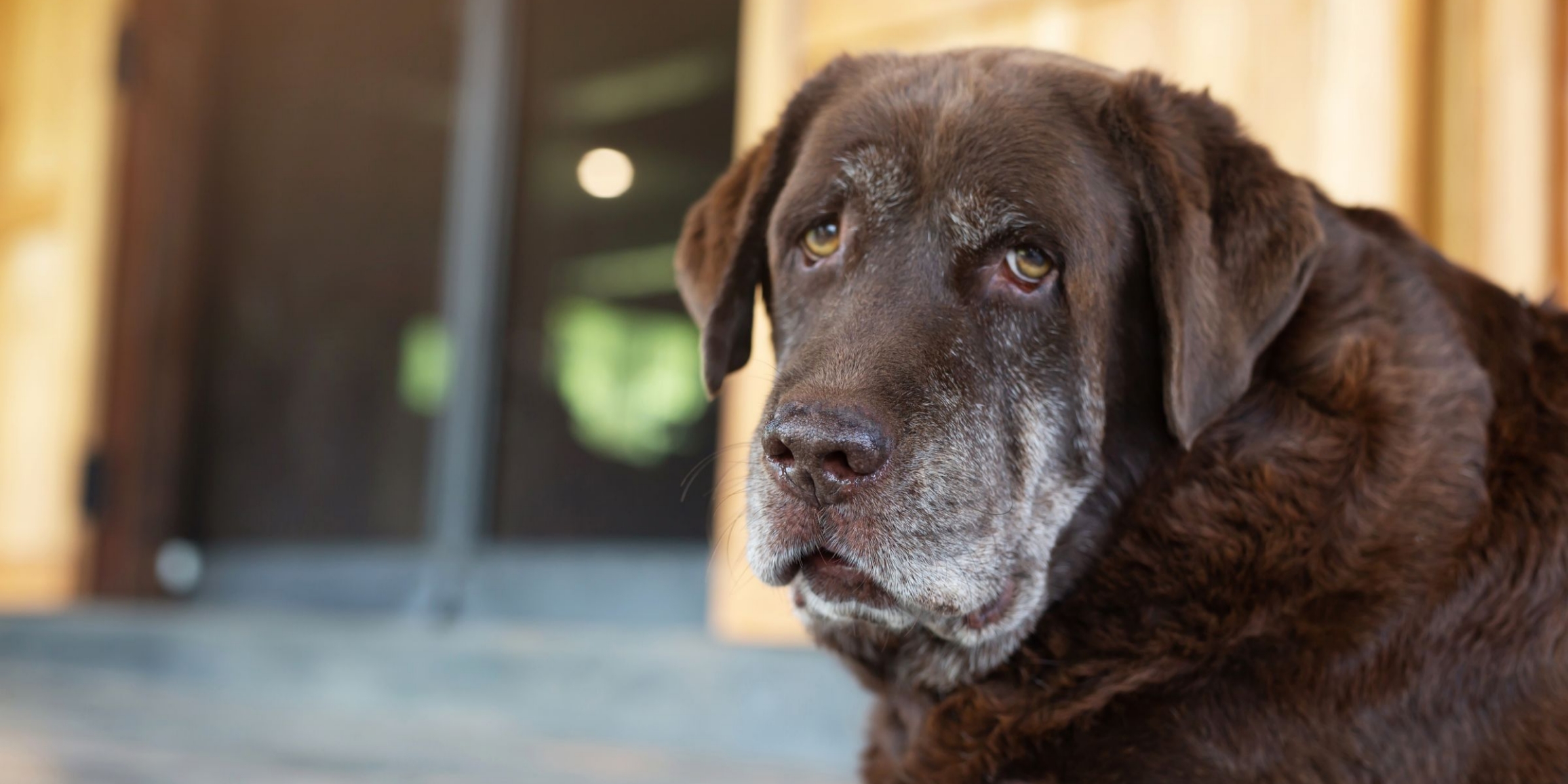Keep Your Aging Pet Happy & Healthy
Published November 6, 2021


Content Reviewed by an Essentials PetCare Veterinarian
No matter their age, our pets will always be our fur-babies, and we want to do our best to give them the long, happy, and healthy lives they deserve. The good news is that you can take proactive steps to help your pet enjoy a high quality of life as they age.
First of All, How Old Is a Senior Pet?
While individual pets age at different rates, the general estimate is that cats and small dogs reach senior status at about 7 years old, while large dogs age a bit faster and begin to enter old age at about 6 years old. A veterinarian will be able to evaluate your pet’s health and give you a more accurate idea of your pet’s life stage.
How Age Can Affect Pets
Age will affect each pet differently, but common challenges that may affect aging pets include:
- Pain & discomfort: Aging pets often experience joint pain, decreased energy, and behavioral changes associate with discomfort. Since pets tend to mask symptoms of pain, watching out for these symptoms can help you determine if it’s time for a veterinary visit to get to the root of the problem.
- Increased risk for illness: As pets age, their immune systems aren’t as good as they used to be, so they are at higher risk of contracting infectious diseases and suffering complications. Older pets are also at a higher risk of developing diabetes, diseases of the heart, liver, kidney/urinary system, and cancer.
- Weight & GI changes: Aging pets may experience weight gain or loss and changes in appetite.
- Hearing & vision impairment: Pets with impaired vision may develop cataracts or visibly “cloudy” eyes, bump into walls and objects in the home, or hug the walls to find their way about the house. If your pet no longer comes running at the sound of their treat bag or suddenly started ignoring the sound of your voice, they may be experiencing hearing loss.
- Cognitive decline: Like people, pets may also experience dementia. Symptoms of dementia in animals may include changes in behavior; restlessness; repetitive motion, such as pacing or head-bobbing; changes in sleep cycles; incontinence, which could also indicate urinary/GI issues; difficulty eating/drinking; disorientation; and getting lost in your own home.
What You Can Do for Your Aging Pet
Providing a heathy lifestyle and being proactive about veterinary care will help your pet maintain a high quality of life in their golden years. To help your pet, you can:
- Keep your pet active – physically and mentally: Set aside time for an exercise/play regimen, even if your aging pet needs to cut back a bit. This will keep your pet mobile and in shape as their body changes. Playing, socializing, and providing enrichment will also help your pet’s cognitive faculties stay sharp as well! Keep in mind that it will be easier for your pet to transition to old age if you start and maintain healthy habits while they’re still young.
- Watch your pet’s weight & diet: No matter your pet’s age, checking your pet’s body condition score at home is a good start to determine if dietary changes are needed. There isn’t one particular diet recommended for all senior pets, but your veterinarian can help you pick the best fit. Many prescription diets are designed to help with the common issues that aging pets face, including GI sensitivity and allergies, weight management, joint pain, urinary health, and cognitive health.
- Set up a safe & comfortable environment: If your pet has poor vision, remove anything in their environment that may hurt them and block off potentially dangerous areas of your home, such as staircases. If your pet isn’t as spry as they used to be, adding pet stairs and ramps will be a great help. Additionally, if your pet prefers more time alone now, set up quiet place in your home that your pet can count on for peace during busy times of the day or when guests visit. It’s especially important to handle aging pets gently so you don’t inadvertently hurt or startle them.
- Treat pain with professional help: Do NOT give human pain relievers to pets without veterinary guidance, as this could be fatal. If you suspect your pet is experiencing pain, please take them to a veterinarian to determine the cause and best treatment to help them feel better.
- Prep for care: Older pets will likely need more veterinary care than when they were younger. Even if your pet is still very young, it’s a good idea to start saving now so you don’t have to worry about finances when the time comes for geriatric care.
- Prevent illness: As the old saying goes, an ounce of prevention is worth a pound of cure! Keep your pet up-to-date on all recommended vaccinations and preventative medication to ward off dangerous diseases and the complications that come with old age.
- Catch issues early: Routine bloodwork and urine tests will help catch any issues early and prevent painful, costly illnesses down the road.
At Essentials PetCare, we make it easy and affordable to provide the basics pets need to stay healthy at every stage in life. Our Guardian Complete Packages, which cost $180 for dogs and $165 for cats, include your pet’s recommended vaccines, a veterinary exam, an intestinal parasite test, comprehensive bloodwork, a urine test, and a heartworm test for dogs.
You can view all packages and pricing on our website and apply to see if you qualify to pay over time on purchases of $150+.
Essential Tip: Did you know that November is Adopt a Senior Pet Month? If you decide to give an older pet a new leash on life, we want to thank you with a free adoption exam through our Annie’s Army Program!
Prices subject to change. See current prices: https://essentialspetcare.com/services.



